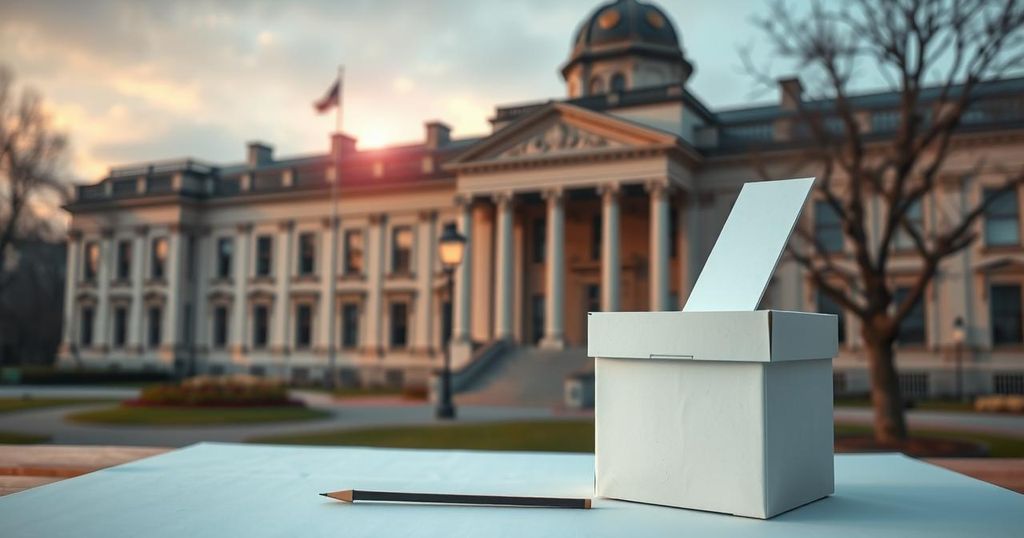Kosovo Parliamentary Elections: Key Issues and Voter Concerns

Kosovo will hold parliamentary elections on February 9, focusing on relations with Serbia, EU integration, and local issues such as education and health. Prime Minister Albin Kurti’s LVV party leads in polls, with heightened tensions between majority Albanians and Serbs influencing the election. Youth desires for reform in education and employment are significant as 27 parties vie for 120 seats.
Kosovo is set to hold parliamentary elections on February 9, amid ongoing tensions between the majority Kosovo Albanian population and the ethnic Serb minority. Key issues in the electoral campaign revolve around relations with Serbia, EU integration, education, and the health system. Current polls indicate Prime Minister Albin Kurti’s party, the Self-Determination Movement (LVV), is leading, followed by the Democratic Party of Kosovo (PDK) and the Democratic League of Kosovo (LDK).
The political landscape in Kosovo is shaped by its complex history, particularly its declaration of independence from Serbia in 2008. With a population of roughly 1.6 million, Kosovo is a parliamentary democracy where citizens directly elect their representatives for four-year terms. Although around 100 countries recognize Kosovo’s independence, Serbia does not, leading to a persistent state of tension despite international mediation efforts.
Kosovo-Serbia relations are expected to dominate this election, particularly the issue surrounding the Association of Serb-majority Municipalities. Political scientists note that mutual distrust has stalled its implementation, with each side awaiting moves from the other. There is hope that international intervention, possibly from the United States, could facilitate simultaneous proceedings that would benefit both parties, including recognition and local governance agreements.
The EU imposed sanctions on Kosovo in 2023 due to rising tensions in the north, which have now become significant electoral topics. Both ruling and opposition parties utilize these sanctions as points of critique against one another. Citizens are also concerned with broader issues such as infrastructure, health care, and education, particularly in light of the nation’s youth demographic, with over half the population under 30 years old.
Youth in Kosovo express a strong desire for improvements in education, job creation, and environmental protections as priorities for future lawmakers. Young individuals have articulated their concerns regarding the lack of health insurance nearly 25 years post-war, reflecting a longing for substantial governance changes.
A total of 27 parties, along with one independent candidate, are competing for 120 parliament seats, with provisions made for ethnic minorities, particularly the Serbs. Recent polling suggests LVV has garnered significant support at 51.2%. The European Union plans to send 100 election observers to ensure the voting process remains peaceful amid potential tensions.
The forthcoming parliamentary elections in Kosovo are critical due to the geopolitical significance of Kosovo’s independence and the ongoing ethnic tensions within its population. The existence of Serb-majority municipalities complicates domestic politics, while Serbia’s persistent claims over Kosovo hinder normalization of relations. This backdrop underpins the electoral agenda, where parties must navigate historical grievances while proposing actionable solutions for the future.
In summary, Kosovo’s upcoming parliamentary elections on February 9 present an opportunity for political actors to address pressing issues such as international relations, ethnic harmony, and socio-economic development. The election highlights the importance of engaging the youth demographic in shaping policies that foster a more unified and prosperous state. As Kosovo prepares to vote, the outcomes could significantly alter the trajectory of its partnerships with Serbia and the EU.
Original Source: www.dw.com







